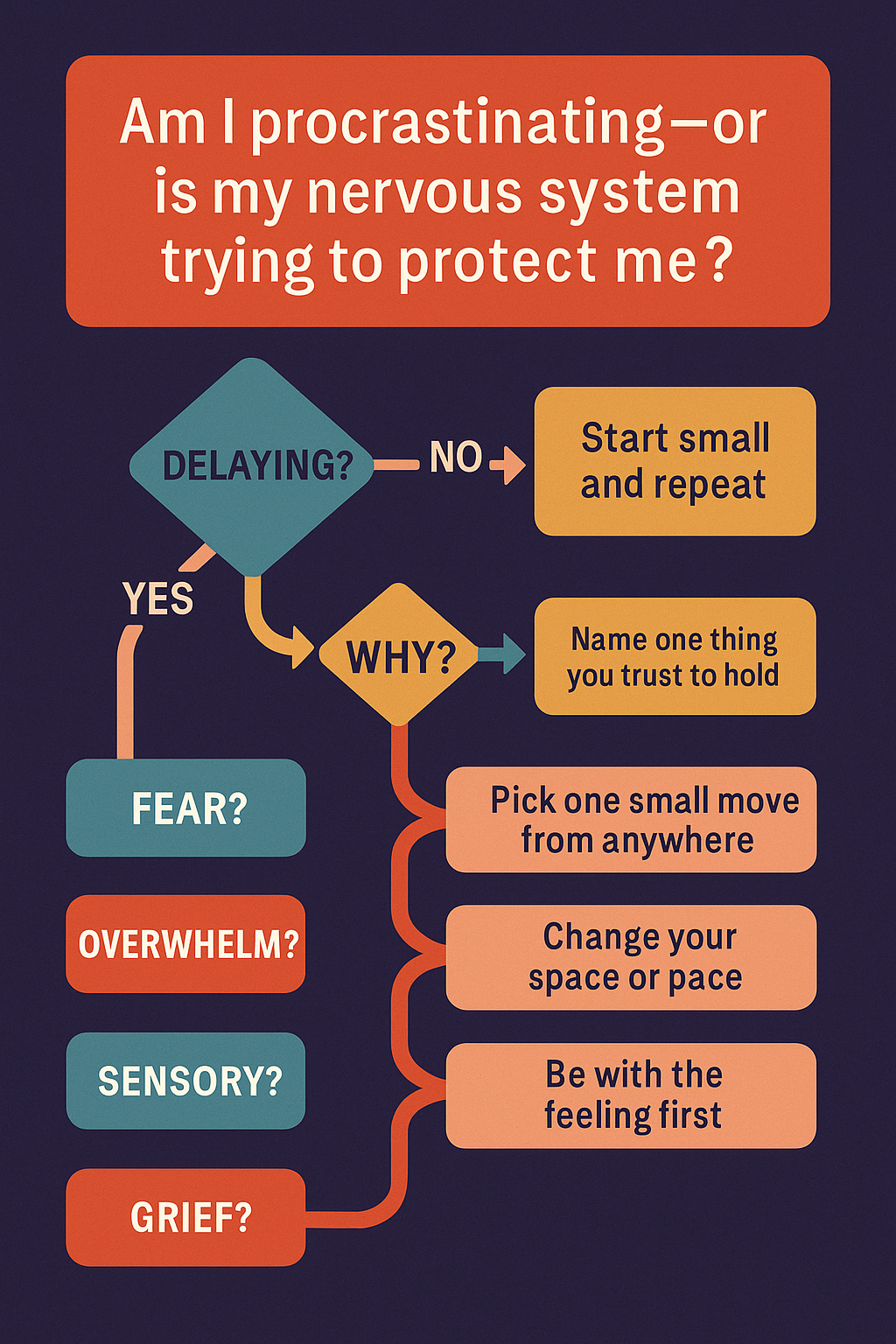
Why delaying your creative work is often a form of intelligence, not failure
Procrastination is one of the most common concerns creatives bring into my sessions.
“I don’t know why I keep avoiding this project.”
“I’ve been staring at the same page for weeks.”
“I want to make something, but I can’t get started.”
In creative culture, and especially in professional spaces, procrastination is often framed as laziness or resistance. But what I’ve found, both in my own work and with the artists and writers I support, is that procrastination is rarely the real issue. It’s a signal. A protective strategy. A nervous system adaptation trying to help.
In other words, creative procrastination isn’t a problem. It’s a pattern. And like all patterns, it can be understood, honored, and reworked into something more aligned.
Why Creatives Delay (Even When They Care Deeply About the Work)
When someone delays creative work, it’s usually for one of the following reasons:
-
Their nervous system doesn’t feel safe enough to begin
-
Their perfectionism has overridden their sense of play
-
Their internal critic is louder than their curiosity
-
Their body or mind is in a state of overwhelm, freeze, or fawn
-
The emotional cost of starting feels too high to risk
These reasons are not excuses. They are context. They often originate from lived experiences of trauma, burnout, rejection, or identity suppression.
Procrastination, in these cases, is the body’s way of saying:
“This might hurt. I’m not ready. Please wait.”
That message deserves respect. It also deserves tools that help creatives move forward at a pace that doesn’t trigger collapse.

The Role of the Nervous System in Creative Avoidance
Many of the creatives I work with live with chronic illness, neurodivergence, or trauma histories. Their nervous systems are not always operating in the background. Often, they are central players in how (and when) creative work gets done.
A person in fight or flight may push themselves through deadlines, then crash.
A person in freeze may go numb and call it laziness.
A person in fawn may agree to projects they cannot complete without depletion.
Understanding these patterns allows us to reframe procrastination. It is not resistance to creativity. It is an attempt to regulate safety. And once that need is recognized, the solution is not to push harder. It is to meet the body where it is.
A More Helpful Question Than “Why Am I Delaying?”
Instead of asking “Why can’t I just do it?” I help clients ask:
-
What does this delay protect me from?
-
What would I need to feel safe enough to start?
-
What does the task represent emotionally?
-
What is the smallest first step that feels accessible?
-
Can I approach this as an experiment, not a test?
Often, these questions uncover deeper creative truths. They also create pathways back to the work that are grounded in care, not pressure.

What This Means for You or Your Clients
If you are a creative person who struggles with procrastination, or if you support people who do, consider this:
You may not need to fix the delay.
You may need to understand the story behind it.
And once that story is named, the work can begin—gently, differently, and in your own time.
In my 1:1 Creativity and Wellness Sessions, we explore the emotional, psychological, and physical context of your creative life. We look at where avoidance shows up, what it is trying to do for you, and how to shift it without shame. This is not productivity coaching. It is permission to return to your work with softness and strategy.
Book a Call Today
You do not have to push through. You just have to begin where you are.
Leave a Reply